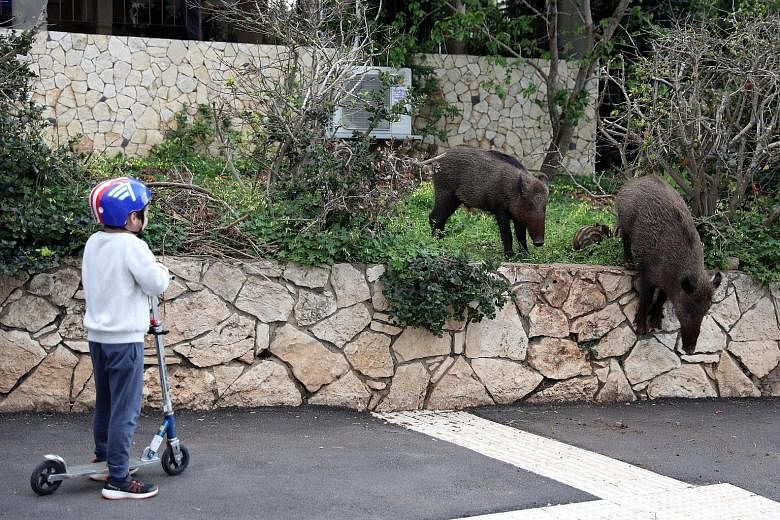As people stayed home amid the global Covid-19 lockdowns early last year, the streets and town centres became play areas and hunting grounds for droves of animals.
In March, a gang of Kashmiri goats ventured into a Welsh town, hopping over brick walls and nibbling at hedges.
Already a subscriber? Log in
Read the full story and more at $9.90/month
Get exclusive reports and insights with more than 500 subscriber-only articles every month
ST One Digital
$9.90/month
No contract
ST app access on 1 mobile device
Unlock these benefits
All subscriber-only content on ST app and straitstimes.com
Easy access any time via ST app on 1 mobile device
E-paper with 2-week archive so you won't miss out on content that matters to you





